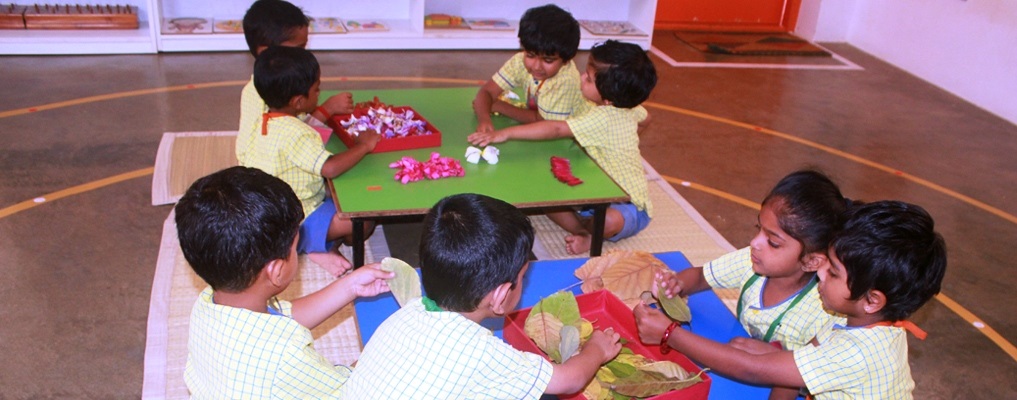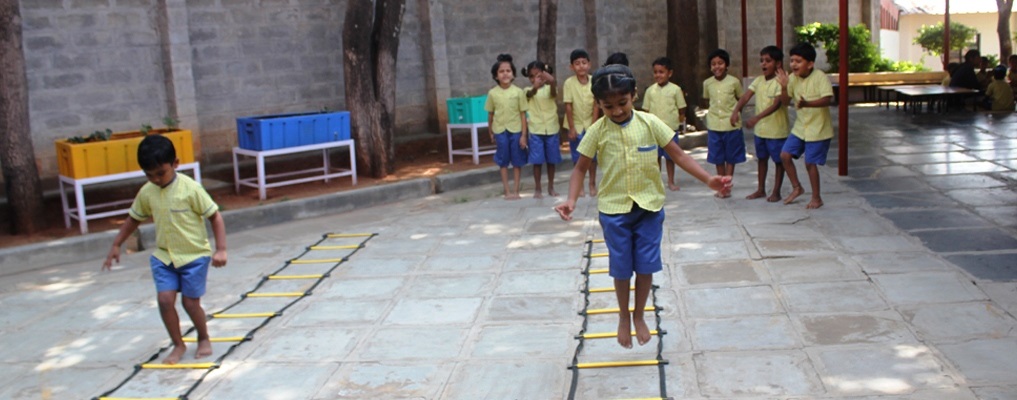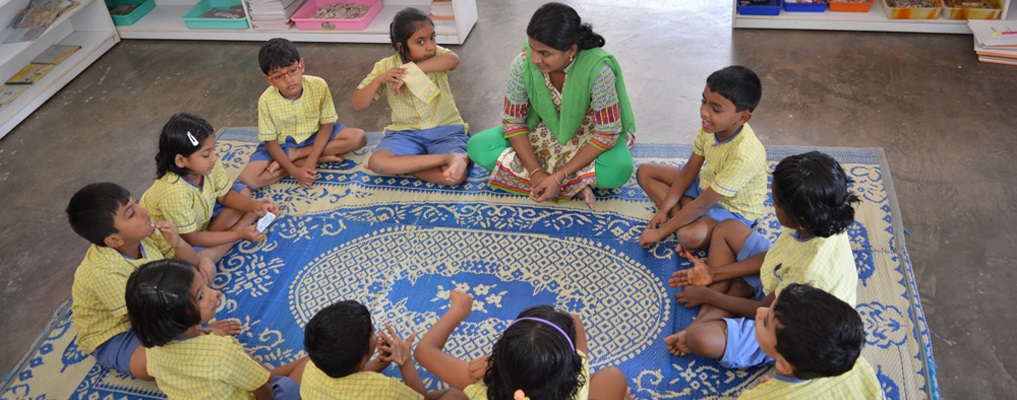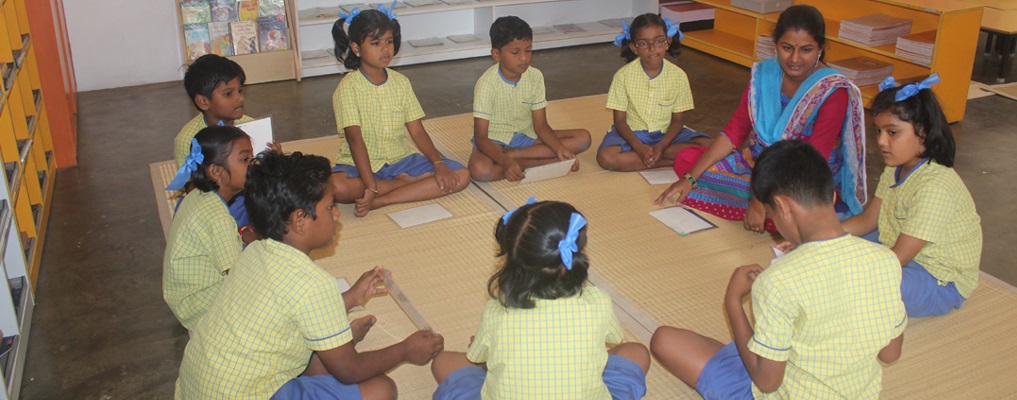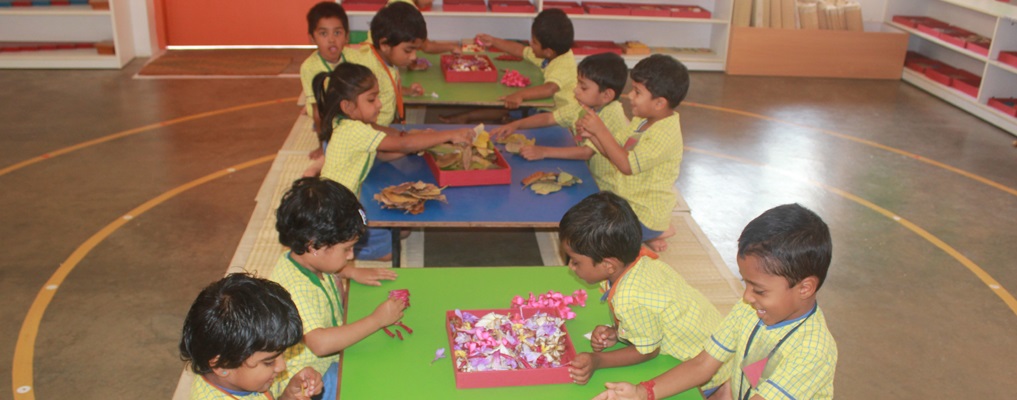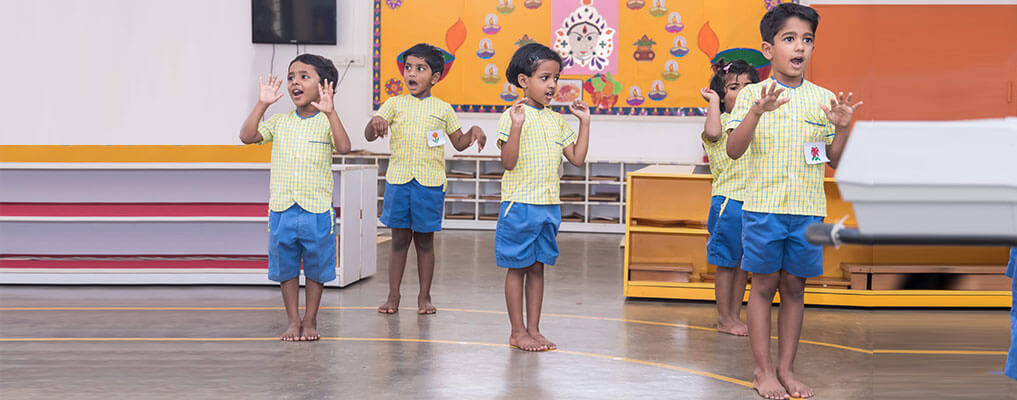Early Childhood
Program
Children are in the ECP from Montessori to Grade 1, from the ages two to six. The ECP addresses the social, emotional, cognitive and physical development of the child, ensuring her/his holistic growth in an environment that is caring, open and welcoming. The program is based on the principles of Montessori, where children learn to take care of themselves, interact with other children and adults, and actively engage with the environment.
The focus of the entry years is to enable children develop positive social skills, become independent in fulfilling their daily needs, make choices in their learning experiences, strengthen their sensory and motor skills, and develop language expression to communicate their thoughts and feelings.
The class room is set up with defined spaces for each activity and materials are stored at the children's eye level, so that they can look, explore and discover at their pace. The materials and activities are designed to support self learning, and time and space is provided to nurture the strengths of each child. Children actively construct meaning as they interact with their materials and share their feelings and ideas with their teachers and peers.
Emotional Development - Caring For Self and Others
The program uses the familiar everyday tasks like rolling a mat, folding napkins, pounding nuts, cleaning the room, and pouring water, so that the child develops eye-hand and motor-coordination and gradually learns to do these activities independently and with ease.
Children learn to take care of themselves - tying shoe laces, dressing themselves, taking care of their hygiene. Children grow a small kitchen garden, learn to take care of plants and harvest the vegetables. During Circle Time they share their feelings and observations. Children become independent, as they learn to take care of their everyday needs, make choices in their activities, materials and the spaces where they work.
Children learn to engage with their peers and teachers and learn the courtesies of everyday life. They are encouraged to share their thoughts and feelings with their peers and their teachers in a mindful way.
Sensory Motor Skills
Sensorial material that are designed to help children refine their sense of sight, smell, hearing, touch and taste enable them to distinguish various colors, textures, shapes and sizes. Daily nature walks where teachers and children experience the sounds, smells and the feel of nature, creates a sense of excitement and wonder. As they walk, children explore their surroundings and they begin to question and understand their connections to the world around.
Language Skills
Language activities are designed to develop skills in reading readiness, number readiness and to share and communicate with others. A conscious effort is made to build children’s vocabulary so they can express their feelings and needs in English and Tamil. Children begin to read using sight words and gradually learn to identify the sounds and decode letters and words in English and Tamil. By Grade 1 they are able to enjoy and read simple texts.
In the early years, children listen with great interest to stories with diverse themes, drawn from different countries. Story telling is often accompanied by puppets or music, and children respond with much excitement to the various characters and their actions. In Grade 1, children choose books from the class collection and enact the stories. They love to dress up, speak in different voices, and play the parts of various characters.
Math Skills
The Math program in the early years focuses on building skills that help the child move towards numeracy. Children develop number readiness skills and are able to identify size, number, dimension, and learn to recognise patterns and sequences. Initially they sort, count, create patterns and develop a sense of order. The materials are arranged so as to build skills sequentially and lay the base for developing higher mathematical thinking.
The understanding of Mathematical concepts is initiated through concrete materials where children sort, sequence, number and identify patterns. Children then begin to communicate their mathematical thinking through speaking and writing. They use pictures or create their own symbolic representation to convey numerical operations like addition and subtraction.
Music And Movement
Children in the early years, have a natural sense of rhythm and music which is strengthened as they sing and move to the beat of the song. They learn a variety of songs in English and in many Indian languages. Children dance together in the joy of movement and song. They develop motor coordination, spatial awareness, patterns and balance, as they sing and move to the music.





